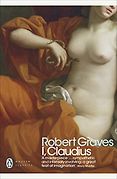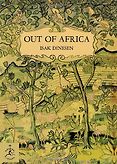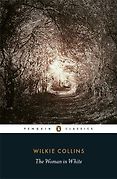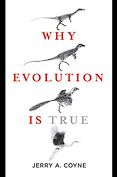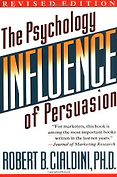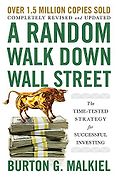I put the list together with some hesitation. Our attraction to particular books is as individual as what attracts us to particular people, partly to do with our own quirks and interests, partly to do with our past and memories, our emotional makeup and intellectual preferences, maybe even just our current circumstances (Last month I visited Vietnam for the first time and am now obsessed with books on the Vietnam War). When I mention I work on a books website, people often respond by saying “Oh that’s great! I love reading.” Then they mention an author I find unbearable. People just have very different tastes and with time I’ve realized that when a friend says he or she loves a particular book, it’s a bit like saying they like a certain member of the opposite sex: there’s a chance our tastes will overlap, but as good a chance they won’t.
So, with that caveat in mind, here are some of my favourites:
I, Claudius by Robert Graves
I’m a child of the 1970s and watching my parents avidly following the I, Claudius, BBC series on Masterpiece Theatre was a formative childhood memory. I thought it was incredibly boring at the time, but when I was in grad school, and my father living in Rome again, I picked up the book in a bookstore one day. From the opening lines, I was completely hooked. It’s very funny in that way of English writers of a certain generation (to the extent that, inexcusably perhaps, I tend to get the author confused with Roald Dahl). I once saw an interview with Robert Graves and apparently he just wrote I, Claudius to make a bit of money, he didn’t take it seriously at all. But he was a great classical scholar and so the book feels real. It’s written in the first person, pretending to be an autobiography of the Roman Emperor Claudius, and although I know, deep down, it’s only Robert Graves pretending to be Claudius, I came away feeling I really knew Clau-Clau (as my husband and I affectionately refer to him as).
If you enjoy it, I strongly recommend the sequel, Claudius the God, too.
Out of Africa by Isak Dinesen
Karen Blixen (pen name Isak Dinesen) never did win the Nobel prize for literature, which is a pity as I do think this, her memoir of living in British East Africa, is one of the most beautifully written books of all time. I am thrilled it got turned into a movie with Robert Redford and Meryl Streep because it made her more famous, and was the way I, personally, got introduced to her. I was 15 at the time, and had always ignored the green and white book sitting on my parents’ shelf but, afterwards, I was inspired. When I left high school in 1988, I went to Kenya for a few days by myself and then spent the year teaching in Zimbabwe (it was a scheme organized by my high school and they didn’t have anything in Kenya). In short, as far as my poor father is concerned, this is probably not a book to share with your teenage daughters. (“How I suffered,” he said recently, about my year in Africa, in the days when there were no mobile phones and letters took weeks to arrive. But I digress…) In the book, her romance with Denys Finch Hatton does not feature at all. It’s much more about her love affair with Africa, making for some absolutely gorgeous descriptions, including this one, where she is wondering whether Africa can, in fact, love her back:
“If I know a song of Africa, of the giraffe and the African new moon lying on her back, of the plows in the fields and the sweaty faces of the coffee pickers, does Africa know a song of me? Will the air over the plain quiver with a color that I have had on, or the children invent a game in which my name is, or the full moon throw a shadow over the gravel of the drive that was like me, or will the eagles of the Ngong Hills look out for me?”
The Woman in White by Wilkie Collins
I love reading mysteries to unwind — it’s my equivalent of watching TV — and I have to admit, i have read a lot. And when I say a lot, I mean a lot — sometimes even two in one day (Don’t tell my husband, who finds my habit frustrating). I have interviewed some of my favourite mystery writers for this site, and I really love their books. But I admit that, again like TV, there’s very few books in the genre that give lasting satisfaction. At the same time, my preference when it comes to novels in general is pre-20th century. I just have more time for voices speaking from the past than I do contemporary fiction authors. This is perhaps why, for me, The Woman in White is the perfect book. I love the plot, I love the characters, I love the settings, I just absolutely adore it. If you haven’t read it yet, I envy you, that you still have that experience in life ahead of you. After I read it, I proceeded to read almost everything Wilkie Collins — who was a friend of Charles Dickens’s — wrote. The Moonstone is as good as The Woman in White, Armadale is still well worth reading. After that, there are still some good things here and there, but it may be worth exercising a bit more restraint than I did….
Why Evolution is True by Jerry Coyne
I started reading this book because I never did study evolution or much biology at school. I really started feeling that deficit when even my aged four-and-under children could fox me with questions like, “Do snakes lay eggs?” I never expected reading this book to be a profound experience, but it was. The fact that the book is setting out to prove, to potentially sceptical US citizens, that evolution is indeed true, makes it highly readable and engaging: it’s not just a textbook saying “This happened and then that happened.” And the writing at the end, when Coyne tries to explain why evolution is a wonderful thing, something to embrace rather than run away from, is really beautiful. It made me look at the world around me — the leaves on the trees, the groundhog on my backdoor step — with a new kind of wonder. Plus my children are very well-informed now, and know they are apes (at least on their father’s side).
Influence by Robert Cialdini
It might seem a bit odd to put a book about psychology dating from the early eighties among my all time favourites: reading the media these days you’d think that all the quirks in people’s thinking (known formally as ‘behavioral economics‘) were only discovered yesterday. But this book tells you something absolutely fundamental about our interactions with other people, which is how we get other people to do what we want, and how other people get us to do what they want. And while academic research may have made some discoveries since then, at least some of the insights are simply a more formal description of human traits that successful second hand car salesmen (one of the groups Cialdini studied) have known about — and exploited — since time immemorial. When you start thinking about it, most of daily life — whether professional or personal — is about getting other people to cooperate with whatever we have in mind, or vice versa, and after reading the book I couldn’t have a telephone conversation or email exchange without reflecting on what was going on. The book is also very funny. Cialdini describes someone coming up with a really crap plan to break into the Watergate building in Washington DC in 1972. Though most of the people involved thought it was a bad idea and generally pointless, the persuasive techniques used by one of the conspirators led to the others just going along with it. The rest, as they say, is history.
A Random Walk Down Wall Street by Burton Malkiel
This is a book everyone should read. Finance is so important these days, people who work in it make such massive salaries compared to the rest of us, that you really have to be armed to deal with the mumbo jumbo. I get the sense that Burton Malkiel is a bit on the defensive these days because this book is a lot about the ‘efficient market hypothesis’ — the idea that the market is good at determining the prices of things — and how can that be true when you have all these bubbles? That just doesn’t bother me too much. You need a tool for getting a handle on how markets operate, and, even if the theory itself isn’t foolproof, what’s really great about the book is that it teaches you to develop a sceptical attitude to financial service professionals in general, and fund managers in particular. Other than lining their pockets, you really are not doing anyone else any favours by investing with them. This book gave me the foundation for a whole decade in financial journalism, culminating in a stint as a staff reporter covering the Shanghai stock market for Dow Jones and even reporting on North Korean bond issues. So while I can’t claim I know what I’m talking about, it is an area where I’ve spent a bit of time in the trenches.
If you like Burt’s book, you might also like to read some of the books on investing he recommended. He didn’t want do an interview with us, but he gave me the titles of his top five. Our interview with Jason Zweig is also highly informative and in the same skeptical vein.
Five Books aims to keep its book recommendations and interviews up to date. If you are the interviewee and would like to update your choice of books (or even just what you say about them) please email us at [email protected]
Five Books interviews are expensive to produce. If you've enjoyed this interview, please support us by donating a small amount.
